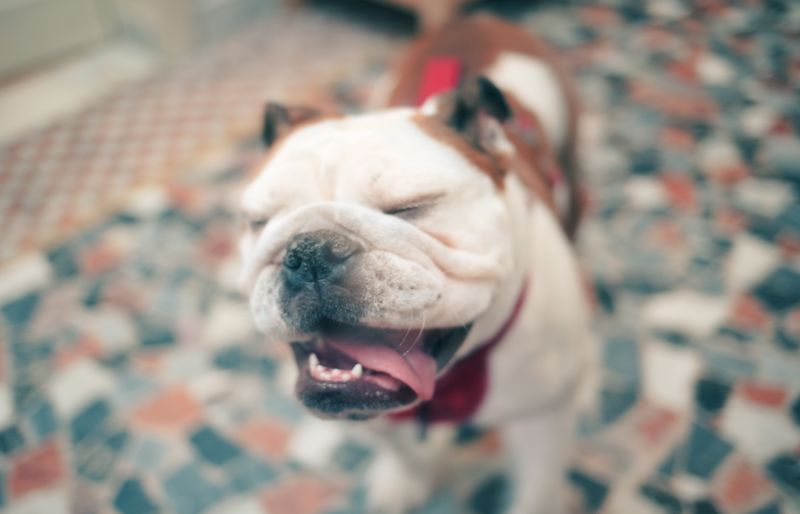Blog
What Was That!? Reverse Sneezing in Dogs

Dogs make a wide variety of sounds, from that happy bark when you come home to gumbles and whines when they want to be fed. But when a dog has an episode of reverse sneezing, it may seem like they are unable to get enough air or trying to get something out of their windpipe. The sound resembles a goose honk and can be disconcerting to pet owners.
The team at Ten West Bird and Animal Hospital is here to explain what occurs during reverse sneezing in dogs and what you can do to help your best friend.
What Is Reverse Sneezing?
Reverse sneezing, called paroxysmal respiration, is a condition that causes a dog to pull air into the nose rapidly. Like a sneeze, the mechanism is used to expel an irritant, such as an allergen, the reverse sneeze is prompted by the same thing. The difference is that a normal sneeze pushes the irritant out through the nose forcibly, whereas in a reverse sneeze the opposite is true with the air suddenly pulled into the nasal cavity.
The resulting noises your dog makes can sound like a honk, wheeze, or gasp. Some dogs also crane their neck out while taking these big gulps of air. Naturally, this can be scary to a pet owner who has never experienced this with their dog, but the good news is that it is usually nothing to worry about.
Most reverse sneezing episodes only last a few seconds to up to a minute. There is no ill effect during a normal reverse sneeze, although your pet may seem a little startled. Afterward, most dogs shake it off and go about their routine.
What Triggers the Episode?
Why are certain dogs more susceptible to reverse sneezing?
Typically, smaller dogs and brachycephalic breeds like pugs and bulldogs are more likely to have the condition. This is due to their elongated soft palate and flat face. Toy breeds have smaller throats which can be a part of their likelihood of developing reverse sneezing.
Other triggers for this condition include:
- Overexcitement
- Allergies
- Pulling on their leash, putting pressure on the throat
- Overexertion
- Upper respiratory infection
- Heart disease (can result in coughing and respiratory challenges)
Treatment
Reverse sneezing is not something that generally requires medical treatment, unless there is another condition causing it. Make an appointment to have your pet examined when your dog is having these episodes more often.
At home treatment includes:
- Gently move your dog’s head up and down
- Massage their neck to get them to swallow
- Safely press down on their tongue (unless they are prone to bite) which helps open the mouth
- Give them distractions like a toy or treat
While this phenomenon is strange, in most cases you have nothing to worry about. If you have any additional questions about reverse sneezing in dogs, or would like to schedule an appointment, please contact us at Ten West Bird and Animal Hospital.
